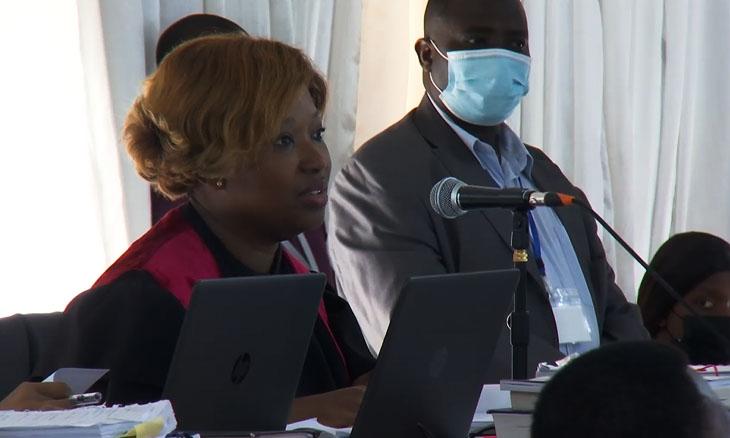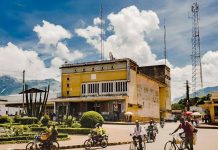Africa-Press – Mozambique. Gregorio Leao, the former head of Mozambique’s State Intelligence and Security Service (SISE), told the Maputo City Court on Tuesday he had no idea that the fishing boats supplied to Ematum (Mozambique Tuna Company) were not fit for purpose.
Leao is one of 19 people on trial for crimes arising from the scandal of Mozambique’s “hidden debts”. At the heart of the scandal are three fraudulent companies which obtained over 2.2 billion dollars in loans from the banks Credit Suisse and VTB of Russia, on the basis of illicit loan guarantees issued by the government of former President Armando Guebuza.
Ematum is one of those companies and it was supposed to establish a tuna fishing fleet. The supplier, the Abu Dhabi group Privinvest, sent 24 fishing boats to Ematum – 21 longliners and three trawlers.
When prosecuting attorney Sheila Marrengula asked Leao whether he knew that the Fisheries Inspection unit of the National Maritime Insitute (INAMAR) had declared that the boats were unfit for catching tuna, he replied “I didn’t know. This is the first time I’m hearing that”.
He could not imagine that the boats were useless, because he had eaten tuna at an up-market Maputo restaurant, the “Zambi”. He had thought the only problem was a bureaucratic one, to do with issuing the necessary fishing licences.
The boats were indeed fishing, Marrengula said, but that was only because adjustments were made to them after their arrival to bring them into line with Mozambican requirements.
Although Ematum has always been described as a fishing company, Leao said that it also had a defence and security purpose. How could this be true, Marrengula asked, when the Ematum company statutes, describing the company’s goals, say nothing about defence and security?
Furthermore, if Ematum was involved in defence activity, did that not simply duplicate the work supposedly done by the first fake company, Proindicus?
Leao replied that Ematum was key to intelligence about what was happening at sea, but he refused to say any more. “I am not going to go into detail about intelligence matters”, he said. “You may not understand the duty of SISE, but I’m not going to explain it to you. We have to be everywhere”.
The Proindicus vessels were intended for combat, he claimed, “but before you fight, you have to do the intelligence work”.
The harsh reality, however, is that there is no evidence of any defence activity of any sort undertaken by either Proindicus or Ematum. After putting out to sea a few times in 2015/2016, the Ematum fleet has been effectively mothballed in Maputo fishing port. As for the Proindicus boats, many of them are lying abandoned on a beach in Pemba.
The Ematum loan was for 850 million US dollars – but when the company Kroll Associates audited Ematum in 2017, it found that 500 million dollars were missing. It was widely assumed that this money had been diverted for military purposes – but both the Defence and the Interior Ministries denied ever receiving anything purchased with this money. Privinvest insists that it does not supply military equipment.
So was the 500 million dollars really used for military purposes?, asked judge Efigenio Batista. “I am not answering this question”, said Leao.
Kroll complained that the Ematum management did not cooperate with the audit, and so the auditors found it impossible to establish what had happened to the 500 million dollars. The last organization known to be in possession of this money was Privinvest. Credit Suisse and VTB sent the loan money to Privinvest and not the companies. The only things that Privinvest sent to Mozambique were overpriced fishing boats and other assets.
It is thus not unreasonable to imagine, in the absence of any feasible alternative explanation, that Privinvest still has the money.
The deal with the third fraudulent company, MAM (Mozambique Asset Management) was somewhat different. The loan guarantee was issued in the name of Palomar Capital, a company founded by former Credit Suisse banker Andrew Pearse, and the owner of Privinvest, Iskandar Safa.
At Credit Suisse, Pearse had worked on the Mozambican loans, and had pocketed millions of dollars in bribes from Privinvest. He admitted the bribes in a plea bargain with a New York court in 2019. There was thus a revolving door between Credit Suisse and the Privinvest empire of corruption (when AIM pointed this out in 2016, Privinvest threatened to sue us).
Marrengula noted that Leao had asked the then Finance Minister Manuel Chang to issue the loan guarantee (for 750 million dollars) in Palomar’s name. She asked whether Leao was aware that Palomar was part owned by a man who had worked for Credit Suisse, before collaborating with Privinvest, and why the guarantee was for 750 million when the loan was only for 540 million dollars?
“I don’t know the details”, replied Leao, before suggesting that the question be asked of his co-accused, Antonio do Rosario, who had been head of SISE economic intelligence and then chairperson of the board of all three companies.






